If you’re looking to buy an electric car, it might feel like you’re entering uncharted waters, but the experience needn't be so taxing.
Sure, it takes a lot of consideration to invest in new technology, particularly if it’s unfamiliar to you.
This guide will help you decide whether or not an electric car is right for you, covering their reliability, safety, range and cost and, if you’re a petrolhead, telling you how much longer you can expect combustion cars to be around for.
Is an electric car reliable and safe?
Yes. Electric cars have fewer moving parts than the equivalent combustion-engined car, which means there’s less to go wrong.
The motor, for example, has one moving part - the shaft, which spins as a result of its interaction between the forces originating from the motor’s wires.
This one component compares with around 2000 in a combustion car.
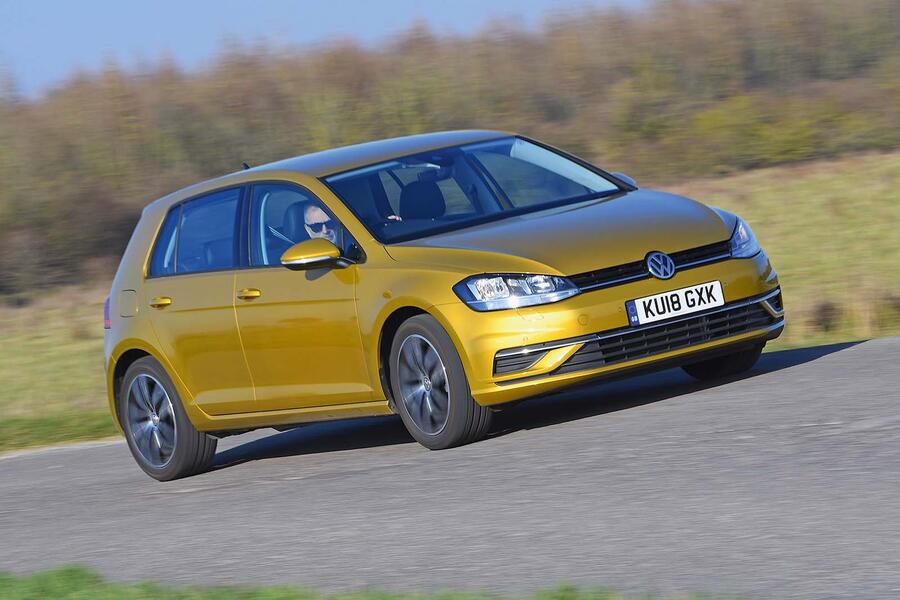
According to Autocar's sister title What Car?, the Nissan Leaf is more reliable than the equivalent-spec combustion Volkswagen Golf.
Ralph Hosier, founder of EV specialist engineering company Ralph Hosier Engineering, said: “[EVs] are exceptionally reliable. There's very little to go wrong. The things that do go wrong can be fixed, usually fairly quickly. It’s much quicker and easier to rebuild a battery pack than an engine, for instance.”
Jack Cousens, the head of roads policy at the AA, told Autocar that the most common reasons for callouts to electric car breakdowns are because of "tyres and the 12V battery".
Cousens also believes EVs are "some of the safest cars on UK roads and are loaded with the latest in vehicle safety technology", with EVs such as the Smart #3, Nio ET5, and Volkswagen ID 7 scoring five stars in the latest round of Euro NCAP crash testing.
Should I worry about range?

Typical electric cars have a range of anything between 100 and 300 miles, but some push to extremities. Currently, the longest-range EV in the UK is the Mercedes EQS, which gets 452 miles to a charge. At the other end, the bargain-basement Citroen Ami returns 46 miles.
Whether you need to worry about range depends on how far you travel. The head of technology and innovation at the SMMT, David Wong, told Autocar: “The average UK mileage [for a driver] is just over 100 miles a week. The average battery range on an EV is more than 230 miles on a single charge – clearly more than ample for general use for many drivers.
“Plus, if you have the opportunity to install a home charger, you will likely find your EV more convenient than an ICE vehicle.”
If, however, you’re unable to install a charger at your home for lack of a driveway or another reason, ‘charge point anxiety’ may understandably take over, where you worry about finding a place to top up.

On this point, Gridserve CEO Toddington Harper said: “Come to one of our charging forecourts in any electric car, and you won't worry any more. Where there aren’t forecourts, we still have super-hubs. The whole country will be very well served within a very short period of time, I have no doubt.”
Weather may be another factor for concern, because range can be significantly shortened if conditions are less than favourable – for example, if it’s cold. Gridserve found that once you hit freezing, the impact on range is around 10% to 20%.
As batteries continue to develop in efficiency and longevity, however, this problem will begin to diffuse.
What kinds of chargers are available?
Different connector types can be split into alternating current (AC) and direct current (DC). Slower AC connectors include the standard UK three-pin plug, and Type 1 and Type 2 connectors, while faster DC connectors include CCS connectors and Tesla’s own Superchargers.
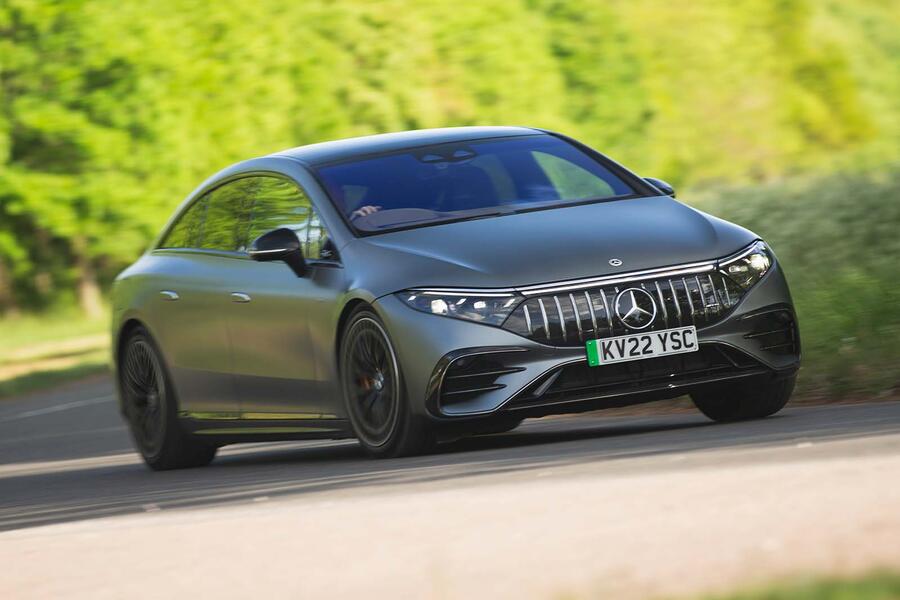
Most brands ranging from BMW and Mercedes to Kia and Hyundai use slower Type 2 chargers and fast-charging CCS connectors, while others use Type 1 and CHAdeMO connectors. CHAdeMO plugs are mostly reserved for older models and aren’t used so much these days, however.
It can take around half an hour to charge a typical EV at a 150kW rapid-charging station from empty to full. Some 350kW chargers will add 100 miles of range in 10 minutes.
If you use a standard 7kW public charger, a full charge arrives in around eight hours and an estimated three hours with a 22kW charger.
How much does it cost to charge an electric car?
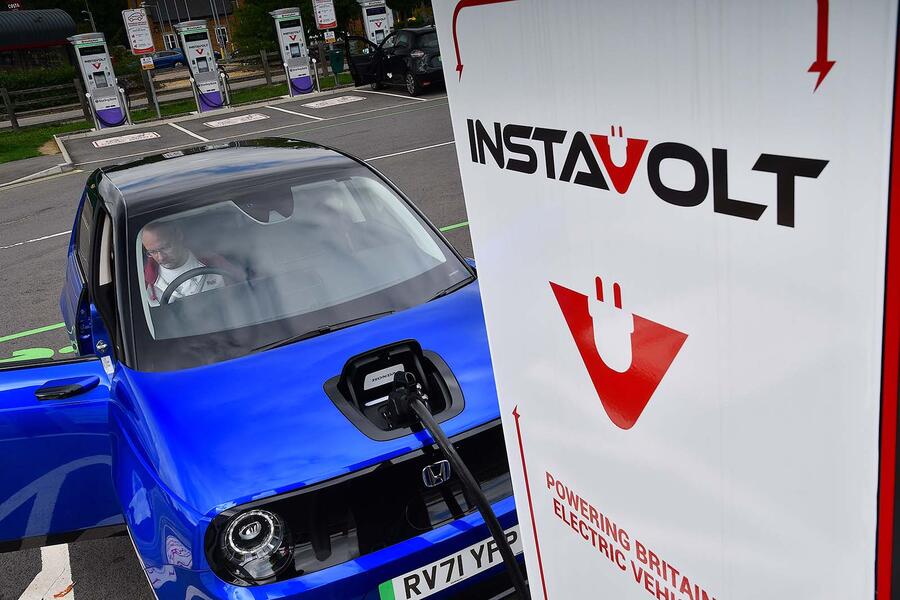
Depending on where you go, it can be cheaper to charge your car than fill it with petrol or diesel.
You can expect to pay 19-21p per mile for petrol or diesel (based on a regular family car), but charging at home overnight (the cheapest option) can cost as little as 3p per mile, meaning a full charge costs around £16 based on a car with a 60kWh battery, such as the Tesla Model 3.
According to the AA, on average a Vauxhall Corsa Electric will cost £19.20 to charge from 0-80% on a slow charger, £22 via a fast one, £27.60 on a rapid and £28.40 for an ultra rapid.
Gridserve, known to be one of the most reliable providers in the country, uses DC rapid chargers priced at 79p/kWh and slower AC chargers at 49p/kWh.
Further details on charge costs can be found here.
Can I afford an electric car?
You can grab a cheaper EV from the used market, and there will be one available for every use case, because the market is always growing. For example, the SMMT told Autocar that used EV sales have “doubled in the last year”.
At the time of writing, the cheapest EVs on the used market are currently first-generation Nissan Leafs and Renault Zoes, each available from around £5000-£7000 for examples that have covered 40,000-50,000 miles.
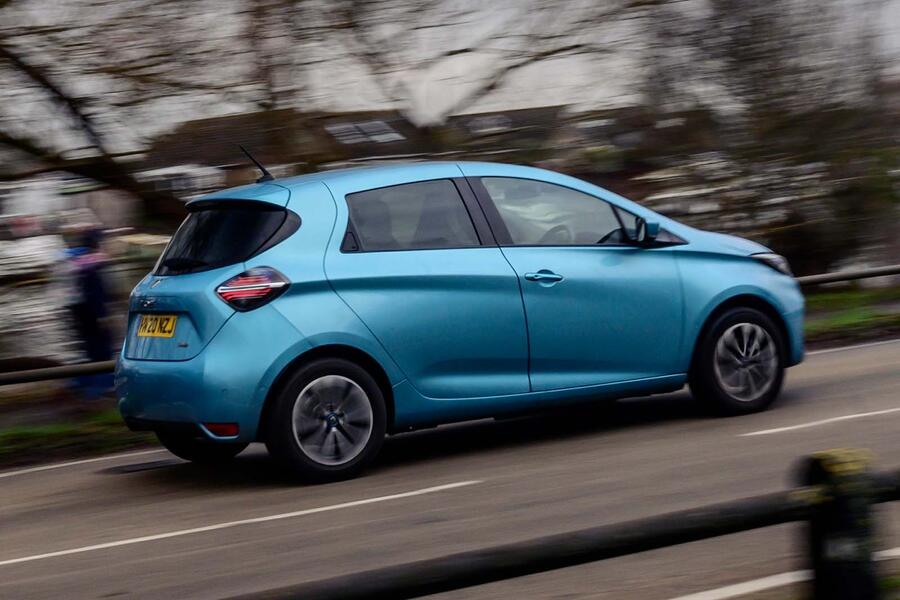
When new, the Zoe came with a battery leasing plan and a guarantee that lasted for eight years or 100,000 miles, so later models may come with a monthly payment for the battery, but will still be under warranty.
Compelling lease deals and financial benefits are also available to EV drivers. You can expect to pay less than £300 per month for a Nissan Leaf, Peugeot e-208, or Vauxhall Corsa Electric with an initial rental of less than £500.
If you’re a company car driver, electric cars are also set at a far lower benefit-in-kind (BIK) rate than their combustion equivalents. For example, at the time of writing, a BMW i4 eDrive40 M Sport is set at 2%, while the 320d is 30%, so you’ll pay less money in BIK tax for an EV.
Should I buy a hybrid instead?
Hybrids offer a stepping stone for those unsure about owning a purely electric car. Three types exist; hybrids, plug-in hybrids and mild hybrids.
Full-fat hybrids use a combustion engine mated to an electric motor, which is charged up by the engine when it is running low. This allows you to drive it a short distance on electric power alone before the engine kicks in.
Plug-in hybrids are essentially the same, but the battery is charged via a wall socket or other external source, rather than the combustion engine. This enables them to travel longer distances on purely electric power.
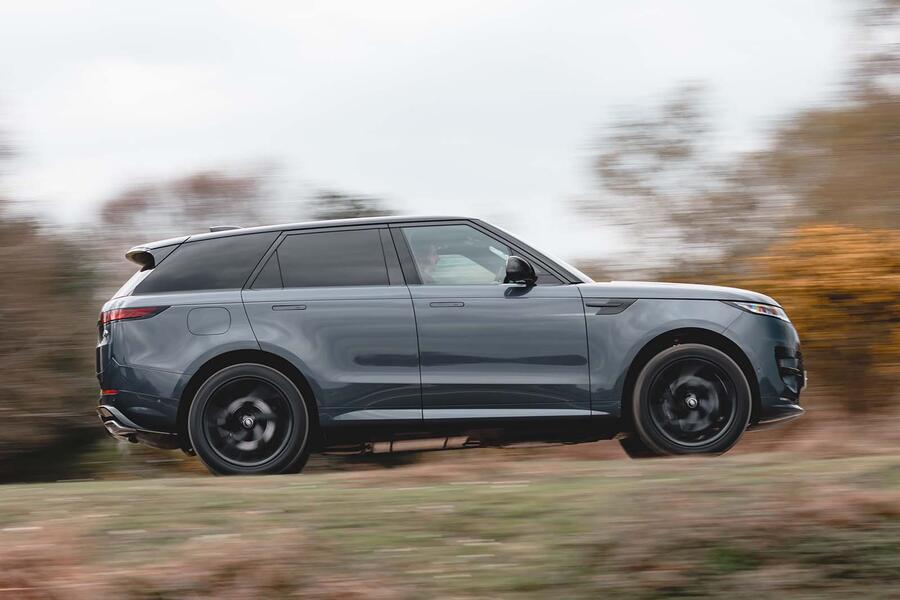
Many will cover roughly 20-40 miles on electric power when fully charged but some go even further. For example, the Mercedes GLC 300de can travel 84 miles as an EV, and the Range Rover Sport P440e 76 miles.
Mild-hybrids use an electric motor in place of a starter motor and alternator, meaning the engine doesn’t have to work during fuel-intensive activities, such as restarting.
How much longer will combustion cars be around for?
It’s anyone’s guess what their role will be, but their days as a major source of propulsion are numbered.
On this, Harper said: “I just think that the mass market of EVs is coming. We see it in our data, to think that we're charging almost 200,000 vehicles a month is extraordinary compared to where we were, and it's going up and up and up.
“I think in the mass market, there will always be space for enthusiasts. And I'm sure there are certain applications where it will make sense for combustion vehicles to run for longer periods, but they will need to meet net-zero legislation and run on net-zero carbon fuels. Today, those fuels are very expensive.”
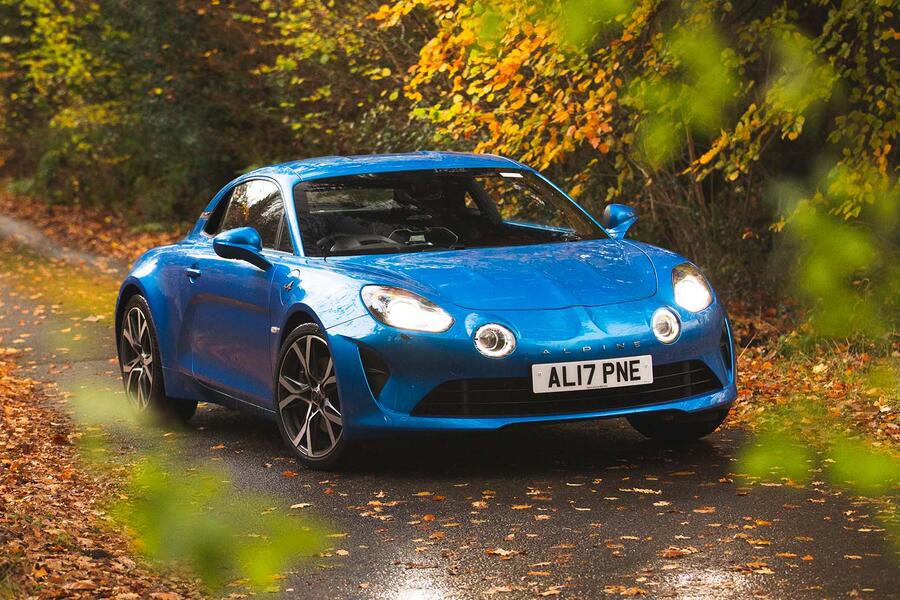
Small-time manufacturers such as Alpine or Caterham (which aren’t currently regulated on emissions as strictly as larger ones) will be able to continue producing cars with a degree of combustion, and brands such as Ferrari are looking into e-fuels as a way of keeping combustion vehicles alive.
Classic cars meanwhile, could have their drivetrains converted to run on e-fuels or electricity. Older models are easier to convert in this way because their chassis isn’t built into the body as it is on modern cars.
If, however, you still want the 6.75-litre V8 in your Rolls-Royce Corniche to run on regular petrol, you’ll have to have plenty of cash in reserve to cover the tax hike that non-electrified combustion cars will incur within the next 10 years.
Verdict - should I buy an electric car?
The answer to this is rooted in your own circumstances, and you should take the plunge so long as you have the basics covered.
Those are: access to a good charging network (or home charger), a knowledge of how long it will take your car to charge up based on the charge speed it accepts, and that you'd like one mostly for your commute to work.
The good news is that you won't have to fork out as much money in maintenance costs or tax as the equivalent combustion car, especially in the run up to 2035. The used market is also growing at a noticeable rate, and is filled with EVs that are being sold at very attractive prices. If, however, you feel the time is not right for you, hybrids make a very good compromise.

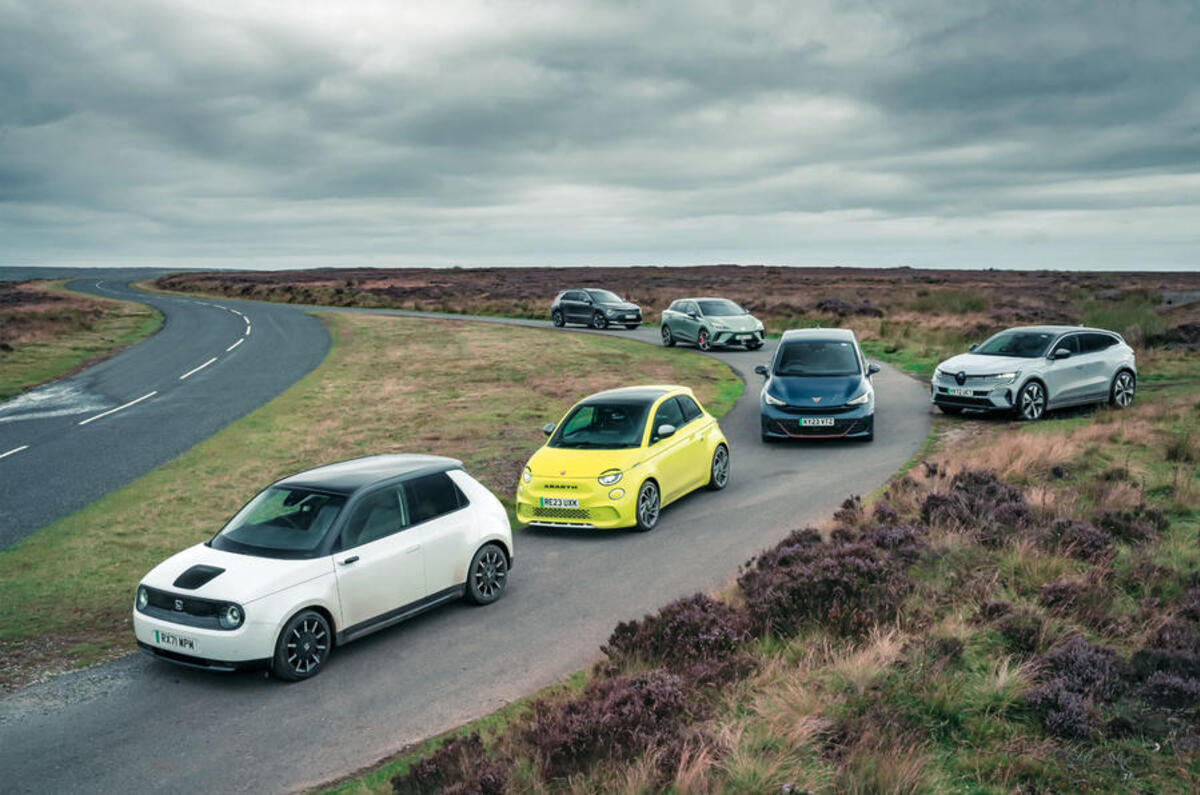








Join the debate
Add your comment
Interesting that all the naysayers in the comments have no actual experience of EVs. Like saying you hate beer, while never having tried it. As the man said, listen to people with experience, not people with opinions.
Article suggests it will help make the right decision, and then goes on to only talk of the good points of EV ownership, and stretches the truth there quite a bit, such as comparing a battery pack to an ICE engine. The oldest engine i have is over 50, and still works fine, the highest mileage is around 164,000, and is fine. None of the cars i have ever owned (far too many to count) has needed work inside the engine. I find it hard to believe that a 2024 battery will still be working perfectly in 50 year, or even 25 with 164,000 miles behind it.
An EV may well be fine for the CoCar driver with a drive. For the private motorist, there cant be many who would be better off with an EV. Of course, some people might buy an EV because they actually like them, and that would be fine (as of course would be buying ICE because you like them more!).
As for the article, Autocar, you can and should do a LOT better
50 years?! Try 5! It's EXACTLY the same battery technology in your average EV as there is in your laptop or mobile. And I've never had a laptop or mobile last more than about 5 years.
MY 5year old EV has done 60k miles and has battery health of 95.4%, which equates to a loss of range of 5.6miles from new. Which I think is perfectly acceptable.
Wow artill.1. How much energy have you wasted in this internal combustion career? EVs travel 3 to 4 times further on the same energy as fossil fuel cars do. In the real world, fossil cars wastre 80% of their energy as heat. 2. How much toxic pollution have you caused? That 50 year old car will be producing pure death from its tailpipe. 3. How much of Putin's petrol have you burned? How much money has left the UK to pay for your petrol? Money that could have gone to support UK based clean energy. 4. How much planet-warming CO2 have you put up into the atmosphere? You need to step back and see the bigger picture.